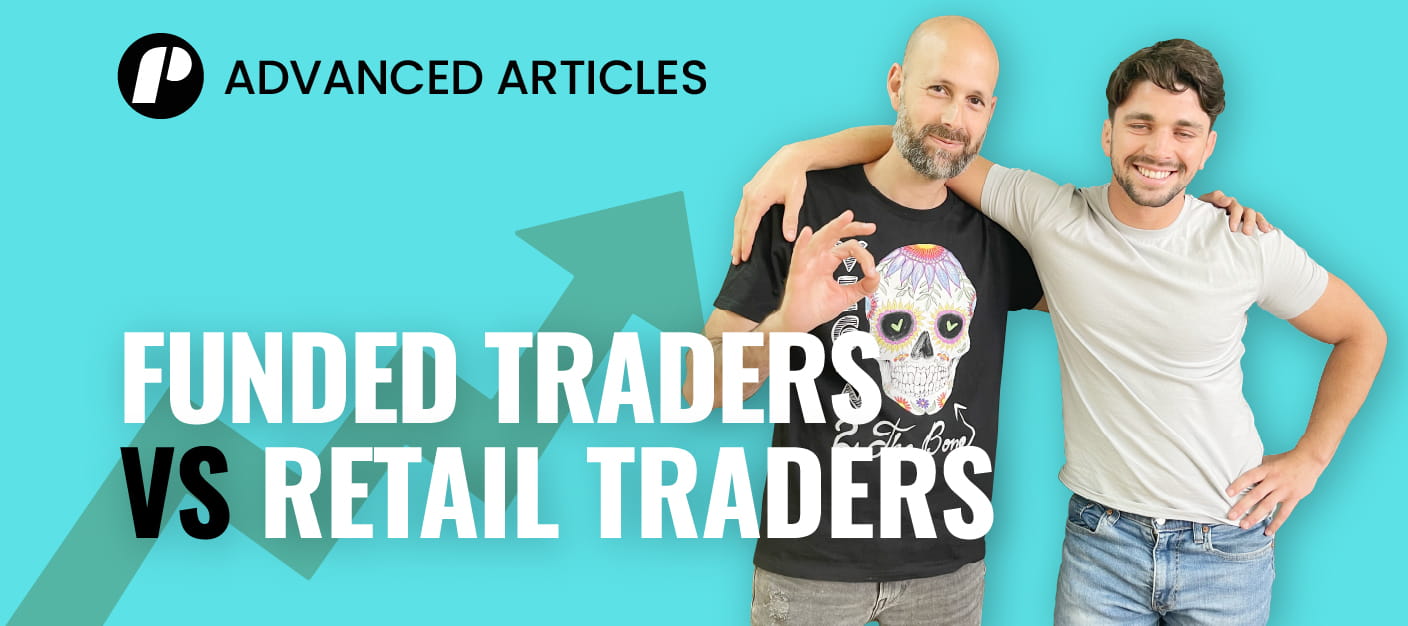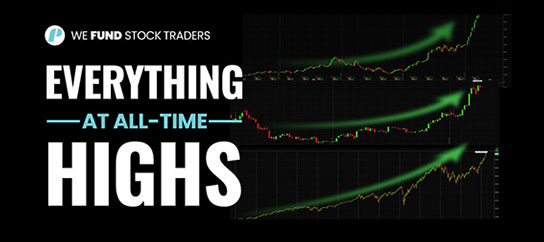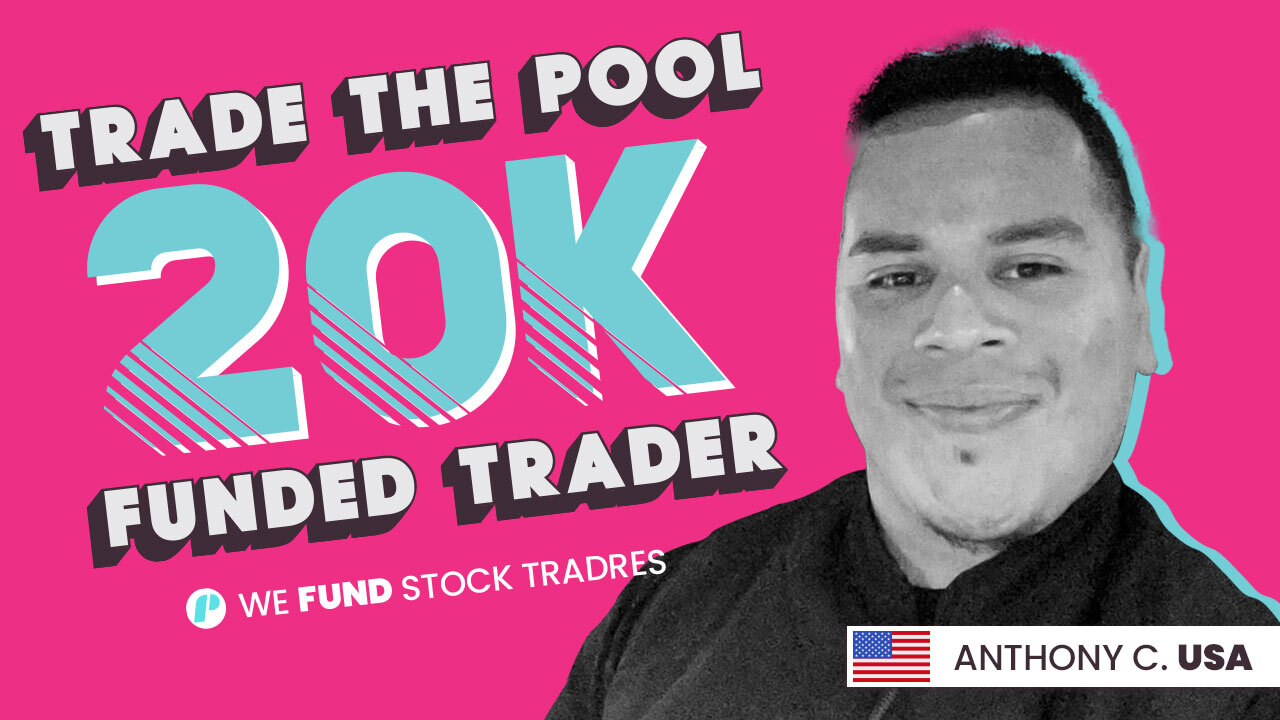
The goal of every business organization is to make profits, including stock trading. Even if you aren’t a full-time trader, there are chances you have some exposure to the stock market. Although trading securities can be as simple as pressing the buy or sell button on an electronic trading account, you need capital to thrive in the market. You have two options to fund your trading journey: either you fund yourself, or an institution funds you with a funded trading account. When evaluating account options, there are several factors you ought to consider.
Although being independent comes with greater flexibility, you also have to compare the cost and account features. On the other hand, opening an account with a proprietary trading firm comes with testing phases and restrictions. This article will guide you in choosing the type of trader you should be when you begin your trading journey.
Who is a funded trader?
A funded trader is a trader who has a trading account with a proprietary trading firm. A proprietary trading firm is an institution that invests in qualified individuals to make trades on their behalf. Any day trader who takes trading to be their full-time job will tell you their ultimate goal is to have a trading account with a proprietary firm.
With a funded trading account, a trader can ease their way into the trading world, and it comes with many advantages. For instance, if you have a funded trading account, you do not have to worry about the stress of getting a license. You can simply use the firm’s license to trade, provided you comply with their regulatory requirements.
Additionally, with a funded trading account, you can trade with a portfolio that significantly exceeds the capital you have at your disposal. However, it is essential to note that getting a funded trading account is not as easy as A-B-C. You may have to go through the rigorous testing phase, depending on the prop firm you are dealing with. Also, you may be asked to pay a subscription fee which would serve as insurance for the prop firms, amongst other requirements. But don’t let this discourage you; later in this article, we will share the easiest way to get a funded trading account.
Who are retail traders?
For most people interested in trading, their first approach to trading is to become retail traders. Retail traders are essentially individuals who trade with money from their personal wealth. A retail trader could be someone trading full-time, but most retail traders trade part-time for some passive income.
As a retail trader, you can trade like everyone else, but you can’t buy and sell securities directly from your personal accounts. Most retail traders often become funded/institutional traders if they perform well.
Retail traders have a low price point, hence, they mainly focus on investing in small market-cap stocks. And because small market-cap stocks are not expensive, retail traders aim to invest in as many securities as they can get their hands on.
Note that you have to go through a broker to make trades as a retail trader. And because the number of shares traded by retail traders is often too few, brokers might charge you a higher flat fee per trade in addition to distribution and marketing costs.
Funded traders vs. retail traders: what’s the difference?
| Funded traders | Retail traders | |
|---|---|---|
| License | Compulsory | Not so compulsory |
| Buying power | Unlimited | 4 times your deposit |
| Risks | Negligible | Traders bear the risks in full |
| Guidance, support, advisors, mentors | Yes | No |
Which is better between funded trading and retail trading?
After differentiating between funded and retail traders above, the next thing is to compare the two and confirm the better option. While we are not going to deny that both forms of trading come with their downside, funded trading is a better option after careful consideration.
There are several reasons funded trading is better than retail trading, and they include:
Commission and fees differences
In trading, the more money you have at your disposal to buy more shares, the higher your chance of getting a bigger take-home cheque. With a funded trading account, you have access to trade with hundreds of thousands of dollars. Whereas with a retail trading account, except you are wealthy and willing to risk a lot of money, you are limited by how much you can use to buy stocks.
In addition to this, when trading, traders may have to pay specific commissions and fees, such as platform trading fees, per-trade commission, and several others, unless they can meet specific minimum requirements about account size and trading volume. Meanwhile, the commission and fees are considerably reduced for funded traders compared to retail traders because of their account size and trading volume.
Leverage differences
Another advantage of being a funded trader is that you tend to have more leverage, whereas as a retail trader your broker may subject your account to specific securities regulations and margin requirements. For example, your broker may require you, as a retail day trader, to have at least $25,000 in equity to perform more than three trades in a rolling five-day business period (PDT rule). Most retail traders may not invest as much within a week, making this restriction tricky.
But on the plus side, as a funded trader, the prop firm will provide you with leverage based on the evaluation program you have chosen and the firm’s policies. Even if you don’t trade more than $30,000 within a week, you do not have to worry about the minimum equity requirement. Moreover, you have more access to funds than a retail trader, so you have more buying power, increasing over time.
Better educational resources
If you are a retail trader, you are responsible for educating yourself. While because your funds are involved, you will be more obliged to learn. But there might be some limitations to accessing the right materials, except if you are willing to travel thousands of miles to attend seminars or pay thousands of dollars to take a trading course. Your access to free educational trading materials is limited if you are a retail trader.
On the contrary, prop firms provide their traders with paid-for courses. Prop firms also organize conferences and seminars to keep their traders in the loop of everything new in the trading world. However, traders should be cautious about this as some prop firms may charge for the educational resources it provides. In the end, prop firms have much more incentive to educate their traders since their capital is at stake.
More consideration
Furthermore, as a retail trader, you are responsible for the trading strategies and the type of assets you buy. The major issue with retail traders is that they do not have access to outside resources, making it difficult to execute certain strategies or purchase assets.
On the plus side, as a funded trader, the prop firm you are working with can help you identify shares for access buying power to buy more options, access liquidity in dark pools, and short selling.
Services of funded trading that elevates your trading
A funded trading account will provide you with various perks such as capital to trade with, lesser risk, trade anytime, live data, and so much more. It is easier to become a professional trader if you can get your hands on a funded trading account than to open a retail trading account.
If you are unsure whether a funded trading account is for you, below are some services exclusive to a funded trading account that will elevate your trading.
Mentoring
While some successful traders are self-taught, most are not. The prop firm will assign a mentor to you with a funded trading account. The mentor will perform as a coach, which will significantly improve your chance of success. Not everyone will require a mentor, but it is always a good idea to embrace the concept of a coach helping out.
With a mentor advising you as you make trading decisions, the probability of making a costly mistake decreases significantly. A good mentor will tailor their training to provide support, meet your needs, and motivate you.
Analytics
You can access advanced and comprehensive analytic tools with a funded trading account. An analytical tool essentially compares the current market condition against certain benchmarks. If you rely on analytics and the market moves awkwardly, you will be better prepared than those who aren’t.
Since a prop firm wants you to succeed, you can expect to get access to the best analytic tool. You can quickly identify data points and determine if they represent opportunities with it.
Account activities
The more you trade, the more complex your account activities get. Keeping track of your account activities in order to learn from mistakes you made can be somewhat tedious, especially on a retail trader’s dashboard.
However, the account activities of a funded trader are much more intuitive. Since prop firms want their funded traders to be successful, they try as much as possible to simplify trading for their traders.
Steps to getting a funded account
There are various trading programs you could join to get a funded account. But not all prop firms are the same. For this reason, before making a choice, there are steps you ought to follow. Below are steps to follow to get a funded account:
Step 1: Get licensed
The first step to getting a funded account from a prop firm is to get your license from the Financial Industry Regulatory Authority (FINRA). To acquire a license, you will have to take and pass the FINRA test. However, the FINRA test covers questions about trading activities and maintaining records and books, clearance and trading reports, and settlement.
It is worth noting that many people struggle to pass this exam. If you find it challenging to take the exam or acquire a license, remember that not every prop firm requires you to have one before you can trade for them since they will test you themselves.
Step 2: Choose a prop firm
The next step to getting a funded trading account is to choose a prop firm that matches your trading style. There are several prop firms you can choose to trade with, so choosing one can be somehow confusing.
When it comes to selecting a prop firm, your best bet is to take note of its several features, especially its policies. To begin with, you ought to understand the share split of the prop firm. Furthermore, it would help if you were clear on the payout and growing terms. Ask relevant questions such as if the prop firm has any recurring fees and if you can leave trades open overnight and over the weekends, just to mention a few.
Step 3: Create an account
When you find a prop firm that suits your trading style, you can proceed to create an account. Creating an account with a prop firm is pretty straightforward. Most prop firms would require you to provide login detail and billing information.
The process includes providing your full name, address, phone number, email, a strong password, etc. In some cases, you may have to provide additional information about yourself like your age, profession, country of origin, and other basic KYC information. Depending on the prop firm, you may have to pay a signup fee during registration. But other than the signup fee, your account creation should be pretty straightforward.
Step 4: Pass the trading program test
After you have successfully opened a trading account, the next thing is to complete a series of tests before getting full access to the funded account. Note that a prop firm will not trust just anyone with their funds. Hence, you will have to take a test to evaluate your trading skills.
On passing this test, your account will then get approved. Although after your account is approved, it will be under restrictions with a couple of hundreds or thousands of dollars in it. Your ability to generate profit will determine if the prop firm will keep you and lift the restriction on your account.
How to pass a funded trading program test and be a better trader?
On paper, the whole process of getting a funded trading account seems pretty straightforward. But in reality, many people find it challenging to pass a funded trading program. So, if you keep falling out, don’t give up. Perhaps the tips we will be sharing in this section of this article might be what you need to pass.
Don’t leave any stone unturned
To begin with, when you register on a prop firm, you want to do your best to go through all its educational content featured in the program. It can be pretty bulky and, in some cases, feature explanatory videos to cover. You may as well be given periodic quizzes at the end of each material, do your best in each of them. No matter how silly the quizzes might be, treat them as a mini-test for the final exam.
Broaden your knowledge
In addition to the training you receive from the prop firm, you want to ensure you do your research. Doing this will broaden your understanding of trading and help you learn different trading strategies. As you learn from the program and your research, do well to practice in the real trading world via a trading simulator. There are several free simulators you can use to practice with live data.
Be disciplined
Furthermore, you want to ensure you follow the rules to show discipline. It is important to portray yourself as disciplined because you will be trading someone else’s money. For this reason, no prop firm will pass you from the funded trading program if they have any iota of irresponsibility on your path.
Be profit-oriented
Every prop firm wants a trader that is profit-oriented and keen on delivering results. The greater the results you deliver, the better the chances that the prop firm will upgrade your account and increase your trading capital. With the little funds and restrictions on your account, you want to try your best to generate profit.
Advantages of becoming a funded trader
So far, we have explained who a funded trader is, how to get a funded trading account, and even how to pass a funded program test. In this section, we will be discussing the various advantages of becoming a funded trader.
You have enough capital to thrive in the market
When it comes to trading, traders need capital to thrive in the market. Sourcing adequate capital to buy enough shares so that their take-home paycheck is meaningful at the end of the month is a challenge many traders face.
However, you do not have to worry about raising the capital to trade if you are a funded trader. The prop firm you are registered to will provide you with access to its fund to buy shares using any trading strategy you have off your sleeve.
More trading option
Since you have access to more funds as a funded trader— this increases your trading options. You can buy different types of shares and use any strategy you desire. Most prop firms give you total control over how you trade with their money as long as you make a profit at the end of the day. However, as the saying goes, “much is expected to whom much is given.” So, as you are given control over the funds, the prop firm expects that you hone in on your trading strategies to ensure you bring in more profits.
Trade anywhere and anytime
You are not restricted by your location or any factor as a funded trader. Since you are essentially not using your funds to trade, you are not breaking any law. You also have the flexibility to trade anytime you like. Although you are trading with someone else’s money, you still have the luxury to trade when it is most convenient for you. But despite the flexibility, you must be disciplined enough to establish a proper trading schedule. Your end goal should always be to deliver the most profit.
Risk-free
Another advantage of trading with a fully funded trading account is that there is no risk involved. Since you are not trading with your funds, the pressure of losing your funds is off your shoulders. The prop firm will bear any loss you have while trading.
While the prop firm will take responsibility for your trading loss, note that some trading firms will cover only a certain amount of losses. Anything above the set amount of loss a prop firm claims to cover will be covered by you. So, it is essential to read the policies of the prop firm before registering.
Make money monthly
Depending on the payout frequency of the prop firm, most prop firms payout monthly. In other words, as long as you keep trading and making a profit every day, your monthly income will keep increasing. And since you are not making trades with your own money, you do not have to worry about losing money; you only have to worry about how to grow your wisdom as you trade every month.
Conclusion
Although it is advisable to operate a funded trading account over retail trading, note that both forms of trading have their fair share of advantages and disadvantages. For example, as a funded trader, your profit from the trade is split by a certain percentage; you get to keep a particular percentage of profit you make while the prop firm keeps the other percentage. Whereas, if you were to trade yourself, you would not have to split your profit. However, if you sustain any loss, you will have to bear it alone.
Ultimately, deciding between being a funded or retail trader is entirely up to you. But it is advisable to aim to be a funded trader as it reduces the risks of trading and guarantees pay at the end of the day.
If you liked this post make sure to share it!





